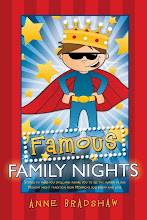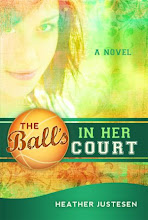Am I the only one who sees this? I don’t think so.
A title is often a reader or viewers first impression of a book or movie. They make their first decision about the worthiness of the work by hearing the title. If the title seems reasonable and interesting they may look at the cover. If the cover is attractive they may read the blurb on the back and if the blurb intrigues them they may thumb through and read a couple of sample pages to get a feel for the writing. If I’m right in believing that a good title can help a work in reaching the right audience, a BAD title can really hinder the success of a book or movie when it screams to the audience “I’m not worthy of your time,” or “I’m too stupid for you to bother with.”
What should a title tell the audience about the book or movie?
1- It may hint at an important thematic element
2- It may introduce the audience to a main character
3- It may give a peek into the story
4- It may clue the audience to the genre, style and tone
5- It may provide mystery and intrigue
Lets look at a few examples of good and bad titles in movies and literature.
Cowboys and Aliens- Okay, they lost me already, but the good news is the title gives a clear image of what the movie is supposed to be. It clues the audience in to the genre and style. So why is it bad? Because it sounds ridiculous, in my humble opinion. The movie may have some redeeming qualities but I am not willing to give it a shot. Someone, somewhere must feel different. I just haven’t met that person yet.
The Incredibly Strange Creatures Who Stopped Living and Became Mixed up Zombies- Attack of the Killer Tomatos- Pride and Prejudice and Zombies- etc. etc. See my comments for Cowboys and Aliens. These titles are BAD and they tell me that the movie or book is also BAD. But at least they’re honest. They are not pretending to be something they’re not so the audience can go into the experience with their eyes wide open.
Pooh Gets Stuck and Cooking with Pooh- These are BAD titles because…do I seriously have to explain it? Maybe my middle schooler is rubbing off on me but COME ON. Many titles with “Pooh” in the title are going to seem a bit…funny/gross. Future titles such as, Tigger Plays with Pooh and Pooh Runs would be just as bad. Sorry for the gross out. The good thing about these titles is it clues the audience into the genre and introduces the main character. And though I‘ve never read it, I suspect Cooking with Pooh is about…cooking. I like knowing what I’m going to get.
Water For Elephants is another title I absolutely hate but it does manage to accomplish at least part of what it intends. To me the title sounds kind of artsy so if it is appealing to the artsy crowd—Mission Accomplished. An alternate title might have been Carnie Love. Carnie Love tells me a little more about what the story is about, but would misinform me about the tone and genre of book/movie. If I saw Carnie Love on the Marquee I would expect something with Adam Sandler, not a dramatic love story.
Here are a couple of my other favorites, just for fun.
I’m Gonna Get You Sucka! – What assumptions do you make from this title?
Buffy the Vampire Slayer- This introduces us to the main character, explains the genre, style and tone of the movie, and tells us what the movie is about.
So while many of these titles are a bit silly or painful, they may not actually be as bad as we think at first glance. I actually appreciate the honesty and creativity of (some of) these titles. I doubt anyone who does a Google, Amazon or Goodreads search of The Incredibly Strange Creatures Who Stopped Living and Became Mixed Up Zombies, will find multiple books or movies using the same title. I personally prefer a more concise, pithy title, but to each his own.
Check out my blog for some of my favorite movies with titles I love.
What is my point to all of this? Simple. Take the time to create a memorable title that informs and draws in the reader in some meaningful way. Come up with an entire list of titles. Chances are pretty good your publisher won’t LOVE the working title of your novel. Spend the time to come up with alternatives. If you don’t, they will. It’s a little strange to me that a writer may spend months or even years writing their book but only give the title secondary thought.
A title does matter. It can be powerful, serious or funny, mysterious or foreboding. Give your choice of title its proper attention and choose multiple titles that fit your work. Make sure you love them and then submit them to the publisher. Maybe the publisher will still edit your title, but don’t shortchange yourself by failing to give your title its proper attention and abdicate the naming of your work to someone else.
What do you think? I would love to hear your comments about the titles you hate.

























